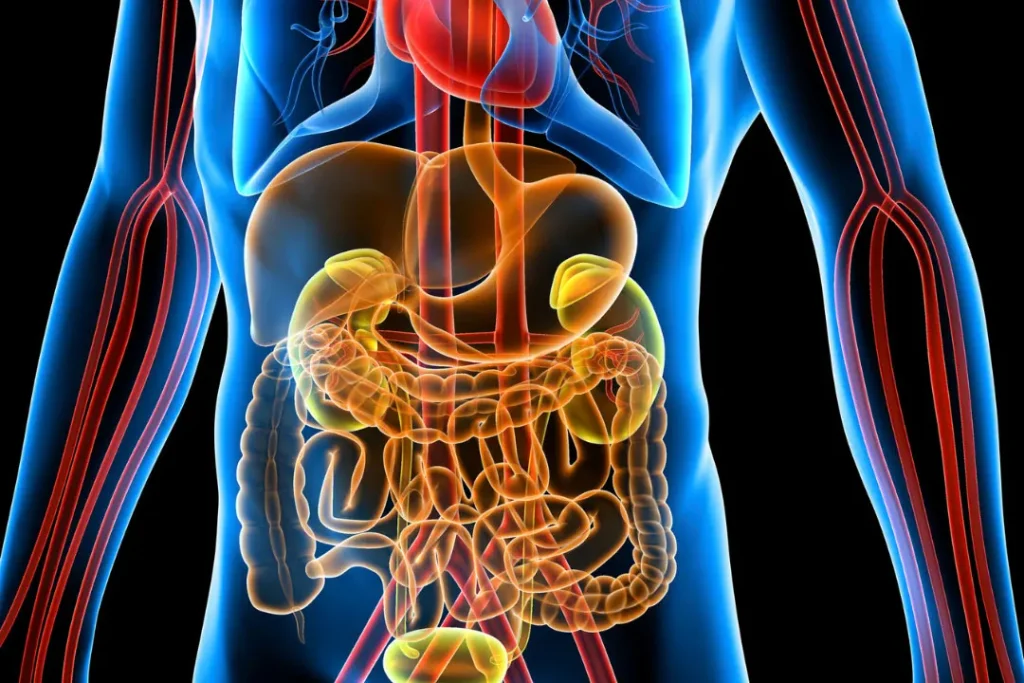The field of dietary supplements is wide and includes everything from well-researched vitamins and minerals to new compounds with interesting promise. One of these, coffee charcoal, which is becoming more popular due to its alleged health advantages, deserves investigation. The characteristics of coffee charcoal, potential health advantages, recommended dosage, potential negative effects, interactions, and responsible usage are all covered in this article.
You May Also Like:
The Best Natural Stimulants for All-Day
7 Amazing Brain and Neurological Benefits of DMAE – A Powerhouse Nootropic
The Nature of Coffee Charcoal
Coffee charcoal is produced in two steps and is also referred to as activated charcoal made from coffee grounds. Initially, coffee grinds go through pyrolysis, a high-temperature, oxygen-free thermochemical degradation process. Coffee biochar is produced at this stage.
The second step is activation, which improves the porosity and surface area of the biochar by adding chemicals like phosphoric acid or zinc chloride or steam.
Coffee charcoal is mostly composed of carbon at the molecular level, with traces of oxygen, nitrogen, hydrogen, and sulfur. In order to perform its primary function of adsorption, activated charcoal must have a wide surface area, which is made possible by its high porosity.

Health Benefits of Coffee Charcoal
Despite the fact that research on coffee charcoal is still in its early phases, preliminary results point to a number of potential advantages, particularly because of its adsorptive qualities.
Digestive health and detoxification: Activated charcoal has a long history of being used for detoxification. It is an excellently absorbent substance, binding a variety of poisons and chemicals thanks to its large surface area and porosity. As a result, coffee charcoal likely aid detoxification and support digestive health.
According to a study published in the Journal of Food and Chemical Toxicology in 2021, persons with irritable bowel syndrome who take activated charcoal may get relief from their bloating and abdominal cramping symptoms. However, since coffee charcoal was not expressly mentioned in the study, it may be necessary to do further focused research.
Antioxidant characteristics: Coffee is well known for having a lot of antioxidants, especially phenolic substances like chlorogenic acid. Coffee charcoal may retain some of these antioxidants, according to preliminary studies, which could have positive health effects. Oxidative stress, which is linked to numerous illnesses, including cancer and cardiovascular conditions, is combated by antioxidants in the body.

Chemistry of Coffee Charcoal
Due to the chemical structure of activated charcoal, its significant surface area and a high degree of porosity are its distinguishing characteristics. Coffee grinds undergo an initial heat treatment during the production of biochar, leaving a carbon-rich residue with an undeveloped, porous structure.
This porosity is improved throughout the activation process using chemical or steam activation. The internal structure of the carbon structure is partially oxidized by this process, creating pores that significantly increase the surface area. This is essential to how it works since the adsorptive capacity increases with surface area.
Chemically, carbon makes up the majority of coffee charcoal. However, it also contains additional elements, most likely leftovers from the original biological substance, such as oxygen, nitrogen, hydrogen, and sulfur.
Some types of activated charcoal are also given extra chemical treatments to improve particular properties. Depending on the activation method employed, the precise kind and quantity of these compounds will change.
Physiological Mechanisms of Action of Coffee Charcoal
Coffee charcoal is an example of activated charcoal that predominantly functions by adsorption, which is a different process than absorption. Adsorption is the buildup of compounds on a surface, whereas absorption is the complete uptake of one material into another. Activated charcoal’s enormous surface area and very porous structure make it essentially a potent adsorbent.
Activated charcoal acts as a magnet for numerous substances, including poisons, chemicals, and gases, as it travels through the digestive system after consumption. These compounds adhere to the surface of the charcoal, travel through the gastrointestinal tract, and are expelled from the body during defecation.
One of the important applications for activated charcoal is in the treatment of acute poisoning, where it can bind the toxin, lessen its absorption, and speed up removal from the body. Theoretically, this feature might also help with general detoxification by binding and expelling unneeded chemicals from the body.

Optimal Dosage of Coffee Charcoal
Due to a lack of study, determining the ideal dosage of coffee charcoal is difficult. A basic framework could be offered by activated charcoal usage recommendations.
Activated charcoal is often given in doses between 500 and 1000 milligrams per day, when used for general health purposes. To that end, coffee charcoal is generally accepted as being safe for almost everyone. It is commonly approved that coffee charcoal should adhere to comparable dosage recommendations, but know that this dosage equivalence is anecdotal. Consult with your healthcare practitioner before experimenting with optimal dosages to avoid any potential toxicity.
Potential Side Effects
Coffee charcoal is usually thought to be harmless, however, there are still some possible interactions and negative effects that it can have on you.
Constipation, dark stools, and in rare instances, bowel obstruction are among the digestive system’s negative effects that are most frequently experienced. Additionally, if inhaled, there is a risk of respirational complications.
Potential Substance Interactions
The adsorptive qualities of coffee charcoal can interact with a variety of substances. It can bind drugs, decreasing their efficacy. It can also bind nutrients, which could result in deficits if drunk frequently with meals. As a result, it must be taken at least two hours apart from any drugs or meals that are high in nutrients if you want to gain its benefits without compromising other nutrition choices.
Responsible Usage of Coffee Charcoal
The use of coffee charcoal must be done with caution and responsibility due to possible interactions and negative effects. It should be used in addition to a healthy diet and any recommended drugs, not as a substitute for them. Before beginning any new supplement, including coffee charcoal, it is always advisable to speak with a healthcare provider.
It’s exciting to consider coffee charcoal as a dietary supplement. It combines coffee’s putative antioxidant advantages with the well-known detoxifying effects of activated charcoal. But there is still a lot to learn about coffee charcoal, including the ideal dosage, long-term safety, and potential health advantages. As usual, users should approach this product, as well as any other supplement, with knowledge and caution, seeing a physician before beginning use.

Coffee Charcoal: Conclusion
Coffee charcoal has the potential to introduce positive effects in your nutritional lifestyle. Many swear by it as a supplement that can help with inflammation, cleaning your skin and pores, and even strengthening kidney function.
In light of these common beliefs surrounding coffee charcoal, it’s crucial that you implement it into your diet carefully, as it is not the most studied additive. It’s perceived effects may either be null or possibly even cause adverse side effects on your body if not closely monitored. Be sure to introduce it deliberately and with an abundance of caution.
In spite of that, however, many do find a slew of health benefits from adding it to their drinks, such as lattes and iced coffee. How will you explore coffee charcoal?
References:
- “Bioactive Plant Compounds in Coffee Charcoal (Coffeae carbo) Extract Inhibit Cytokine Release from Activated Human THP-1 Macrophages” https://www.ncbi.nlm.nih.gov/pmc/articles/PMC6930648/
- “COFFEE CHARCOAL” Retrieved from RX List. https://www.rxlist.com/coffee_charcoal/supplements.htm
- “The Benefits of Activated Charcoal for Intestinal Gas”. Retrieved From: https://www.medicalnewstoday.com/articles/322609
- “Activated Charcoal Latte: Unique Recipe!” Retrieved from: Cofee Affection. https://coffeeaffection.com/activated-charcoal-latte-recipe/
Important Note: The information contained in this article is for general informational purposes only, and should not be construed as health or medical advice, nor is it intended to diagnose, prevent, treat, or cure any disease or health condition. Before embarking on any diet, fitness regimen, or program of nutritional supplementation, it is advisable to consult your healthcare professional in order to determine its safety and probable efficacy in terms of your individual state of health.
Regarding Nutritional Supplements Or Other Non-Prescription Health Products: If any nutritional supplements or other non-prescription health products are mentioned in the foregoing article, any claims or statements made about them have not been evaluated by the U.S. Food and Drug Administration, and such nutritional supplements or other health products are not intended to diagnose, treat, cure, or prevent any disease.


